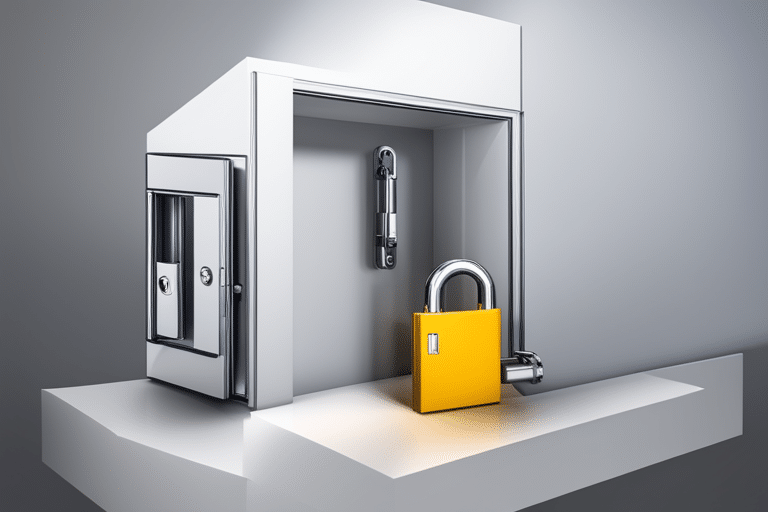So, you’ve found yourself in a bit of a financial pickle, huh? Don’t worry, we’ve all been there.
But before you start panicking and reaching for your piggy bank, let’s talk about secured vs. unsecured debt.
Trust us, understanding the difference between these two can make all the difference in the world when it comes to your financial future.
So grab a cup of coffee (or tea if that’s more your style) and prepare to master the art of debt management.
Key Takeaways
- Secured debt requires collateral, such as a car or house, while unsecured debt does not require collateral.
- Secured debt offers lower interest rates and higher borrowing limits, while unsecured debt has higher interest rates and lower borrowing limits.
- Secured debt provides a safety net for lenders, while unsecured debt carries no risk of losing assets.
- Missing payments on unsecured debt can negatively impact credit score and future borrowing opportunities.
Types of Debt
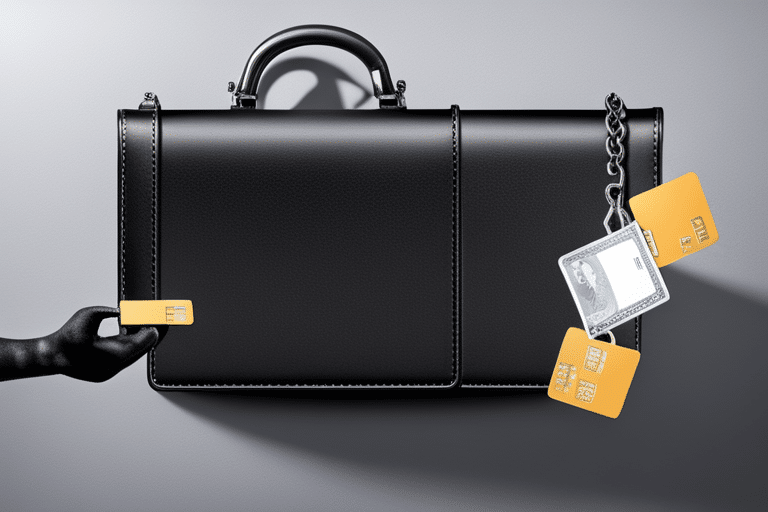
There’s a variety of debt, including secured and unsecured options. It’s like having a magical menu of financial obligations to choose from. Let me break it down for you, my curious friend.
First up, we have secured debt. This is like getting a loan with a safety net. You offer something valuable as collateral, like your car or house, to the lender. In return, they give you money to fulfill your dreams or pay off other debts. The pros? Lower interest rates and higher borrowing limits! But be warned – if you can’t repay your debt, the lender can seize your precious collateral.
Next on the menu is unsecured debt – it’s like ordering dessert without any strings attached. No collateral required! Credit cards and personal loans fall into this category. You get the money upfront but at higher interest rates and lower borrowing limits compared to secured debt. Plus, there’s no risk of losing your assets if things go south.
Definition of Secured Debt
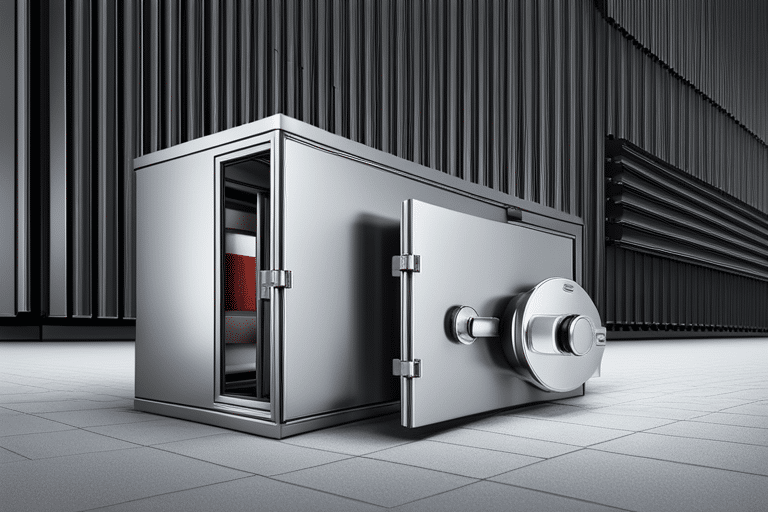
So you’ve dipped your toes into the world of debt, huh? Well, let’s dive a little deeper and talk about collateral requirements for secured debt.
You know, those pesky things you have to pledge in case you can’t pay back what you owe.
And while we’re at it, we’ll also chat about the risk factors for unsecured debt and how it can impact your credit score.
Ready to take the plunge? Let’s go!
Collateral Requirement for Secured Debt
When taking out secured debt, you need to provide collateral as a requirement. Now, before you start picturing yourself going on a treasure hunt to find hidden gems for your creditor, let’s break it down.
Collateral is simply something of value that you own and can offer up as assurance that you’ll pay back the loan. It’s like leaving your favorite pair of shoes with a friend until you return their money.
The importance of collateral in secured loans is that it gives lenders peace of mind and allows them to offer lower interest rates and higher borrowing limits. So not only do you get the funds you need, but you also enjoy some advantages along the way. It’s like having your cake and eating it too!
Risk Factors for Unsecured Debt
To better understand the risks involved with unsecured debt, let’s take a closer look at factors that can affect your ability to repay the loan.
Picture this: you’re applying for a loan, and the lender wants to know if you’re worthy of their credit. They’ll assess your creditworthiness by looking at your credit history, income stability, and current financial obligations.
It’s like going through a Dazzling Dance Competition where your moves (or in this case, financial stability) are under scrutiny. The judges (lenders) want to see if you have what it takes to repay the loan on time or if you might end up defaulting like a clumsy dancer tripping over their own feet.
Default rates are no joke! So make sure you put on your best financial dancing shoes before taking on unsecured debt!
Impact on Credit Score
If you miss a payment on your unsecured debt, it could negatively impact your credit score. And let’s face it, no one wants a sad credit score. So, here are four things you need to know about how that missed payment can affect your financial reputation:
-
Your credit score takes a hit: Missing a payment on your unsecured debt can lower your credit score faster than an ice cream cone melts in the summer sun.
-
It stays on your record for years: That missed payment will haunt you like a ghost at Halloween. It can remain on your credit report for up to seven long years, reminding lenders of your past mistakes.
-
Interest rates may skyrocket: Brace yourself because if lenders see that you’re not so great at making payments, they might raise the interest rates on any new loans or lines of credit you apply for.
-
Goodbye to future borrowing opportunities: Missed payments can make potential lenders think twice about giving you money in the future. So be responsible and manage your debts wisely!
Definition of Unsecured Debt

Understanding unsecured debt is important because it doesn’t require collateral. It’s like borrowing money from a friend without having to promise your first-born child as security (phew!).
So, what’s the difference between unsecured and secured debt? Well, my friend, secured debt is when you put up something valuable, like your flashy new car or your cozy home, as collateral for the loan. On the other hand, unsecured debt is more like a trust exercise with your lender. They have faith in you and believe that you’ll pay them back based on your creditworthiness alone.
Now, let’s talk about the advantages of unsecured debt. First off, there are no repossession threats looming over your head if you miss a payment or two (cue collective sigh of relief). Your lender can’t just snatch away your belongings in the middle of the night like some kind of financial ninja.
Secondly, unsecured debt typically comes with lower interest rates compared to secured loans. That means less money out of your pocket in the long run! Plus, obtaining unsecured credit can actually help improve your credit score if managed responsibly.
Collateral: The Key Difference
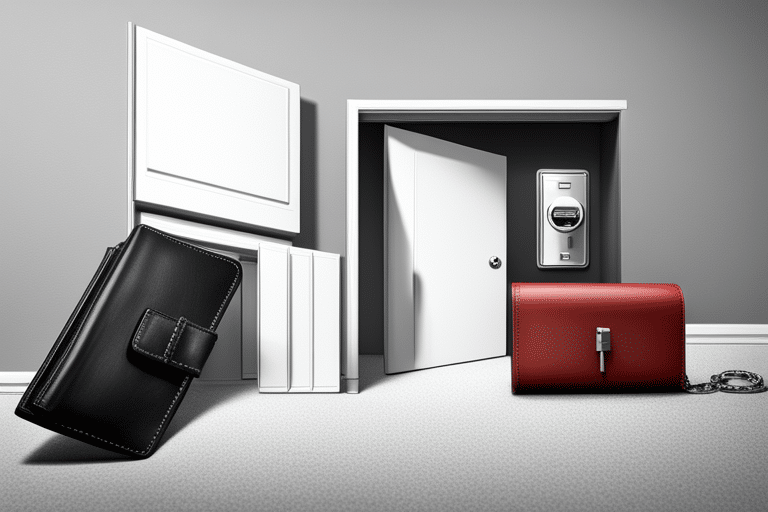
So you’ve learned about unsecured debt, but now it’s time to dive into the world of collateral!
It’s like the secret ingredient that can make or break your loan terms. In this discussion, we’ll explain what collateral is all about and how it can impact those sweet, sweet loan terms you’re after.
Get ready for a whimsical adventure through the land of secured loans!
Collateral Requirement Explained
When it comes to collateral requirements, you’ll want to know the difference between secured and unsecured debt. It’s like choosing between a superhero with powers or one without. Here are four key things to understand:
-
Loan Eligibility: Secured debt requires collateral, such as your car or house, which acts as a safety net for lenders. This makes it easier to get approved for a loan since they have something valuable to rely on if you default.
-
Consequences of Default: If you fail to repay your secured debt, the lender can seize the collateral and sell it to recover their money. So keep up with those payments unless you want your Batmobile taken away!
-
No Collateral Needed: Unsecured debt doesn’t require any collateral but usually has higher interest rates since lenders take on more risk without anything tangible to fall back on.
-
Credit Impact: Defaulting on both types of debt will hurt your credit score, but losing collateral can have long-lasting effects on future loan applications.
Impact on Loan Terms
You’ll want to consider how the impact on loan terms can affect your financial situation.
When it comes to loan repayment, interest rates play a crucial role. Picture this: You’re sitting in a room full of bankers, each one with a different interest rate floating above their heads like thought bubbles. As you approach them for a loan, you have to pick the banker with the lowest rate, or else your dreams of financial freedom might go up in smoke!
But wait, there’s more! High-interest rates mean you’ll be paying back way more than you borrowed. It’s like trying to fill a leaky bucket with water – no matter how much you pour in, it just keeps dripping away.
Risks and Benefits of Secured Debt

The risks and benefits of secured debt are important to consider when making financial decisions. So, let’s dive in and explore what makes secured debt so intriguing! Here are four things you need to know:
-
Protection Galore: With secured debt, you have the benefit of collateral. This means that if you can’t repay your loan, the lender has something valuable to seize – like your car or house – as a form of payment. It may sound scary, but it gives lenders peace of mind and often results in lower interest rates for you!
-
Higher Borrowing Power: Secured debt allows you to borrow larger sums of money compared to unsecured loans. Why? Because the lender knows they have an asset they can claim if things go south.
-
Better Interest Rates: Due to the reduced risk for lenders, secured debts usually come with lower interest rates than their unsecured counterparts. Who doesn’t love saving money on interest payments?
-
Credit Building Opportunity: By responsibly managing your secured debts, you show lenders that you’re reliable and capable of handling larger financial responsibilities. This boosts your credit score over time!
When comparing secured and unsecured debt, it’s crucial to weigh these risks and benefits carefully before making any decisions – after all, knowledge is power!
Risks and Benefits of Unsecured Debt

If you’re considering unsecured debt, it’s important to understand the potential risks and benefits. Sure, it may sound a bit scary at first, but fear not! Unsecured debt can actually be quite handy in certain situations.
Let’s start with the benefits. One major perk of unsecured debt is that you don’t have to put up any collateral. That means no risking your shiny new car or beloved collection of vintage action figures. Plus, there are usually fewer restrictions on how you can use the borrowed funds. Need to pay off some medical bills? Go for it! Want to take a dream vacation? The choice is yours!
Of course, like most things in life, unsecured debt does come with its fair share of risks too. Since there’s no collateral involved, lenders tend to charge higher interest rates to compensate for the increased risk they’re taking on. And if you miss payments or default on your loan, your credit score could take a hit faster than a squirrel grabbing an acorn.
Speaking of credit scores, let’s dive into how unsecured debt can impact them…
Impact on Credit Score
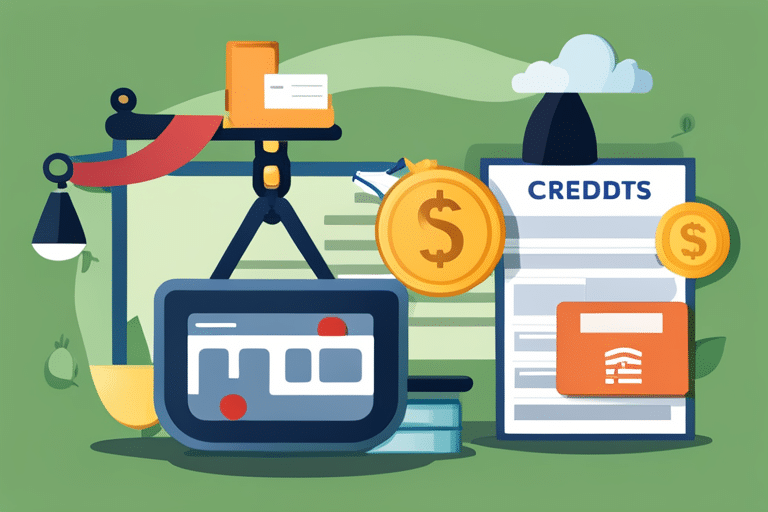
When it comes to your credit score, remember that missed payments on unsecured debt can have a negative impact. Your creditworthiness assessment is like a report card for lenders, and those missed payments can be like a big red ‘F’ next to your name.
Here are four ways that missed payments on unsecured debt can affect your credit score:
-
Score Drop: Each missed payment can cause your credit score to take a nosedive, making it harder to get approved for loans or credit cards in the future.
-
Late Fees: On top of the hit to your credit score, you’ll also have to pay late fees and possibly higher interest rates as punishment for missing payments.
-
Long-Term Consequences: Missed payments stay on your credit report for up to seven years, haunting you and potentially limiting your financial opportunities.
-
Lack of Trust: Lenders see missed payments as a sign of irresponsibility, which makes them less likely to trust you with their money.
So, if you want to maintain a good credit score and be seen as financially responsible, it’s crucial to stay on top of those unsecured debt payments!
Now that you understand the impact on your credit score, let’s move on and talk about choosing the right debt for your situation…
Choosing the Right Debt for Your Situation

Choosing the right debt for your situation ultimately depends on your financial goals and ability to make consistent payments. It’s like choosing the perfect pair of shoes – you want something that fits just right and won’t give you blisters in the long run.
So, let’s take a whimsical journey into the world of debt and explore how to choose wisely.
First things first, when it comes to choosing the right type of debt, you need to evaluate the long-term implications. Think of it as picking between a roller coaster ride or a leisurely stroll in the park. If you’re looking for a thrilling adventure with potentially higher interest rates but greater rewards, then secured debt might be your cup of tea. On the other hand, if you prefer a more relaxed approach with lower interest rates but fewer risks, unsecured debt could be your go-to option.
Consider your financial goals and determine whether you can handle making consistent payments without feeling overwhelmed. After all, no one wants to wear uncomfortable shoes all day! By weighing these factors and evaluating your options carefully, you’ll be well-equipped to choose the ideal debt that aligns with your financial aspirations.
Frequently Asked Questions
How Does the Type of Debt Impact My Eligibility for a Loan?
When it comes to getting a loan, the type of debt you have can make a big difference. It impacts your eligibility requirements and can affect the terms of your loan. So choose wisely!
Can a Secured Debt Become Unsecured Over Time?
Sure, a secured debt can become unsecured over time if the collateral changes. It’s like transforming your car into a balloon animal—suddenly, it’s no longer tied down. Just remember to update your loan agreement!
What Are Some Common Examples of Unsecured Debts?
When it comes to unsecured debt, examples abound. Credit cards, medical bills, and personal loans are just a few. Explore the pros and cons of these debts and navigate your financial journey with confidence.
Will My Credit Score Be Affected Differently by Secured and Unsecured Debts?
Your credit score can be affected differently by secured and unsecured debts. Understanding the comparison of these types of debts is key to keeping your score in check. Let’s dive into it!
Are There Any Situations Where It Would Be Better to Have Both Secured and Unsecured Debts?
Having both secured and unsecured debts can be advantageous in certain situations. It allows you to diversify your credit profile and potentially improve your credit score. So go ahead, mix it up!
Conclusion
So, now you know the ins and outs of secured and unsecured debt!
It’s like choosing between a sturdy castle wall and a floating balloon.
Secured debt offers protection with collateral, while unsecured debt is like setting your dreams free in the sky.
Both have their risks and benefits, but remember to choose wisely based on your situation.
And always keep in mind, whether it’s a fortress or a hot air balloon, your credit score will be impacted.
Happy debt navigating!

